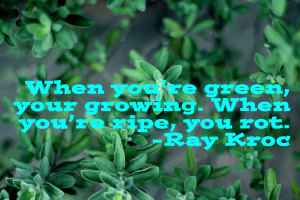Writers should always be green and growing. Even those who have penned hundreds of novels or sold millions of copies should constantly be learning how to be better.
I believe the best way to grow is to read, and read a lot. Not so that you can steal other’s ways of writing, but to absorb their great knowledge. Stories and words, character arc and sentence structure, body language and emotion—reading how other writers do these can make writers more creative with their own.
No matter how much I think I might know about a certain writing topic, I love to read writer’s craft books to see how others do it and maybe learn something new. Even if I don’t take someone’s advice on plotting, I might learn something that helps me or reminds me.
That being said, I do have a few How-To-Write Books that I think all authors should have on their shelf. Here’s my top five:
1. On Writing, by Stephen King
Whether you love him or not, Stephen King is a master at his craft, and he knows how to tell a (frightening) story. His book is one of my favorites, because it speaks of his struggles as a would-be author before anyone knew who he was, and offers his own brand of advice. I can’t say enough about this book, but it helped me to be proud of who I am and what I write. He’s a genius, plain and simple, but he’s had his own struggles. I think admitting those is what makes him the brilliant writer he is.
2. Prosperity for Writers: A Writers Guide to Creating Abundance, by Honoree Corder
I love positive thinking books, and find them good reminders of how to change my thoughts. This book was much more than just a “think positive” book. It offers exercise, suggestions, and backstory of the writer’s life to help you recognize, understand, and get out of your own limiting beliefs and change your thought patterns when it comes to your writing.
3. Take Off Your Pants!: Outline Your Books for Faster, Better Writing by Libbie Hawker
Ugh, another plotting book you might think. It took me a while to buy this and read it, because of my fear of plotting and all the other books I’ve read in the past. I can’t tell you how many plotting books I’ve read that I haven’t been able to follow. And some that I’ve liked and will never read again. I love plotting books, love learning how other people plot. I am not a plotter, and usually when I plot I get way stuck! But this book was a nice epiphany on how to get my novel plotted, without really having to “plot” in the way I’ve known plotting to be n ways that normally suck out the enthusiasm for my story before it even starts. Also, some plotting books tell you they’ll teach you how to plot, but they really don’t. They just offer examples of plots of TV shows, etc. Loved this book, and will read it again.
4. The Emotion Thesaurus: A Writer’s Guide To Character Expression, by Angela Ackerman and Becca Puglisi
Every writer should have this book on their shelf.
5. Mary Buckham’s Writing Books
Seriously, there’s too many to list and they are all books that writers, especially beginners, should read. Her Active Settings and Active Hooks books are especially important. As a writer myself, I find that Mary Buckham’s books and courses are some of the best, as well as Margie Lawson. If you want to grow as a writer, read Mary Buckham’s books on writing.

